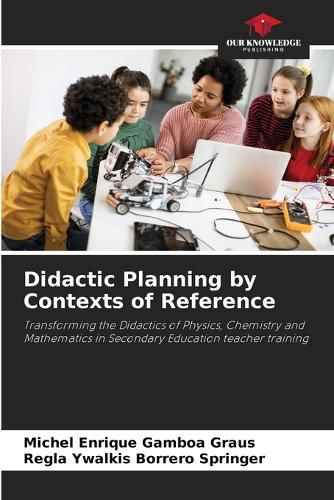Readings Newsletter
Become a Readings Member to make your shopping experience even easier.
Sign in or sign up for free!
You’re not far away from qualifying for FREE standard shipping within Australia
You’ve qualified for FREE standard shipping within Australia
The cart is loading…






This book presents the procedure "Didactic Planning by Reference Contexts", a pedagogical tool designed to transform the training of Physics, Chemistry and Mathematics (FQM) teachers in Secondary Education. Through a clear structure and concrete examples, the book guides the reader in the application of this procedure, which is integrated to the recognized ABCE method (Learning Based on Teaching Cases). The book explores how the analysis of "pedagogical reference contexts", real teaching-learning scenarios, allows future teachers to understand the complexity of didactic planning, connect theory with real classroom practice, develop a critical eye and make informed pedagogical decisions, as well as foster creativity, innovation and collaborative work. With practical examples in Physics, Chemistry and Mathematics, the book illustrates how this procedure helps teachers to design meaningful and relevant learning experiences for their students, connecting scientific content with everyday reality, in order to empower teachers to inspire future generations.
$9.00 standard shipping within Australia
FREE standard shipping within Australia for orders over $100.00
Express & International shipping calculated at checkout
This book presents the procedure "Didactic Planning by Reference Contexts", a pedagogical tool designed to transform the training of Physics, Chemistry and Mathematics (FQM) teachers in Secondary Education. Through a clear structure and concrete examples, the book guides the reader in the application of this procedure, which is integrated to the recognized ABCE method (Learning Based on Teaching Cases). The book explores how the analysis of "pedagogical reference contexts", real teaching-learning scenarios, allows future teachers to understand the complexity of didactic planning, connect theory with real classroom practice, develop a critical eye and make informed pedagogical decisions, as well as foster creativity, innovation and collaborative work. With practical examples in Physics, Chemistry and Mathematics, the book illustrates how this procedure helps teachers to design meaningful and relevant learning experiences for their students, connecting scientific content with everyday reality, in order to empower teachers to inspire future generations.